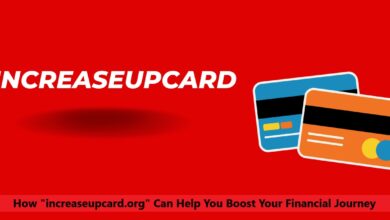Loans vs. Credit Cards: Which Option Is Better for Your Short-Term Financial Needs? Forpchub.com

Managing short-term financial needs can often feel like walking a tightrope. Whether it’s covering unexpected expenses, consolidating debt, or funding a small project, the choice between a loan and a credit card can make or break your financial strategy. But which one should you choose? In this blog post, we’ll dive into the pros, cons, and best use cases for both options to help you make an informed decision. Let’s settle the debate on “loans vs. credit cards: which option is better for your short-term financial needs? forpchub.com.”
What Are Loans and Credit Cards?
Loans
A loan is a fixed amount of money borrowed from a lender (such as a bank or credit union) that you repay with interest over a set period. Loans can be secured (backed by collateral) or unsecured (not tied to any asset).
Examples of Loans:
- Personal loans
- Payday loans
- Small business loans
Credit Cards
A credit card is a revolving line of credit. It allows you to borrow up to a certain limit and repay the borrowed amount either in full each month or over time with interest.
Examples of Credit Cards:
- Standard credit cards
- Rewards credit cards
- Balance transfer credit cards
Key Differences Between Loans and Credit Cards
| Feature | Loans | Credit Cards |
|---|---|---|
| Repayment Terms | Fixed monthly payments | Flexible minimum payments |
| Interest Rates | Typically lower for good credit | Higher, especially for unpaid balances |
| Access to Funds | Lump sum upfront | Revolving credit |
| Fees | Origination, prepayment, etc. | Annual fees, late fees, etc. |
| Best For | Large, one-time expenses | Small, recurring expenses |
When Should You Choose a Loan?
Loans can be the better option when you need a large, one-time sum of money for a specific purpose. Here’s why:
Advantages of Loans
- Lower Interest Rates: Loans, especially personal and secured ones, often have lower interest rates than credit cards. This makes them ideal for big-ticket items like home renovations or consolidating debt.
- Predictable Repayment Plans: Fixed monthly payments and a defined term make budgeting easier.
- Higher Borrowing Limits: You can typically borrow more with a loan than a credit card.
Disadvantages of Loans
- Lack of Flexibility: Once you borrow a loan, you can’t access additional funds without applying for a new one.
- Upfront Costs: Many loans come with fees like origination charges.
- Credit Impact: Taking out a loan can temporarily lower your credit score.
Best Situations for Loans:
- Consolidating high-interest debt
- Financing a wedding or large purchase
- Covering medical expenses
When Should You Choose a Credit Card?
Credit cards shine in situations where you need smaller amounts of money frequently or have the ability to repay quickly. Here’s why:
Advantages of Credit Cards
- Flexibility: Use as much or as little as needed within your credit limit.
- Rewards and Perks: Many credit cards offer cashback, travel rewards, or other incentives.
- Convenience: Accepted almost everywhere, making them great for emergencies.
- 0% Intro APR Offers: Some cards offer promotional periods with no interest, which can be useful for short-term needs.
Disadvantages of Credit Cards
- High Interest Rates: Carrying a balance can lead to steep costs over time.
- Temptation to Overspend: Easy access to funds can lead to financial mismanagement.
- Fees: Late payments, annual fees, and cash advance fees can add up.
Best Situations for Credit Cards:
- Handling day-to-day expenses
- Covering emergency costs
- Earning rewards on regular purchases
Factors to Consider When Choosing
1. Amount Needed
- For large, one-time expenses: Loan
- For smaller, recurring expenses: Credit Card
2. Interest Rates
- If you qualify for a low loan rate, it’s usually cheaper.
- If you can pay off your credit card balance within a 0% APR period, it’s a good choice.
3. Repayment Discipline
- Loans require consistent payments, which are great for disciplined borrowers.
- Credit cards offer flexibility but can lead to debt if mismanaged.
4. Speed of Access
- Loans may take days or weeks to process.
- Credit cards provide instant access to credit once approved.
Loans vs. Credit Cards: Which One Is Right for You?
To decide between loans and credit cards for your short-term financial needs, ask yourself:
- How much money do I need?
- How soon can I repay it?
- What is my credit score?
- Am I looking for flexibility or structure?
Conclusion
Both loans vs. credit cards have their merits, and the best choice depends on your unique financial situation. If you need a large sum and can commit to fixed payments, a loan is your go-to option. On the other hand, if you need flexible access to funds and can manage repayment responsibly, a credit card might be the better choice.
Ultimately, understanding your needs, financial habits, and repayment ability will help you make the right decision. So, before choosing, weigh the pros and cons carefully. If you’re still unsure, consult a financial advisor to guide you through the process.
FAQs
1. Can I use both a loan and a credit card for short-term financial needs? Yes, you can use both depending on the situation. For example, use a loan for a big expense and a credit card for smaller, ongoing needs.
2. Which has a bigger impact on my credit score? Both affect your credit differently. Loans impact your score with hard inquiries and repayment history, while credit cards affect your utilization ratio and payment habits.
3. Are loans better for debt consolidation? Yes, loans often offer lower interest rates, making them ideal for consolidating high-interest credit card debt.
4. What should I do if I can’t repay on time? Contact your lender or credit card issuer immediately to discuss repayment options. Avoid ignoring the issue, as it can harm your credit.
5. Are there alternatives to loans and credit cards? Yes, options like personal savings, peer-to-peer lending, or borrowing from friends and family can also help meet short-term financial needs.
We hope this blog helps you navigate your financial decisions with confidence. Share your thoughts or experiences below, and let us know which option worked best for you!




